
Partner Regions Leading the Way in Re-use Policies
In recent months, the 2LIFES project has demonstrated remarkable progress in its partner regions' efforts to promote re-use policies.
Europe needs to accelerate its entry into the era of re-use. The old linear economy equation “produce, use and throw away” is not valid anymore. However, a significant portion of reusable home appliances including books, clothes, WEEEs, furniture and food are still being wasted and landfilled.
Despite the waste hierarchy in force – Reduce, Re-use and Recycle – and the fact that cities and regions are backing some re-use initiatives, re-use could be much further developed. Waste management programmes include re-use but prioritise recycling, even though re-use is more environmentally and socially friendly.
Thus, the project is meant to be an instrument to help boost re-use through public policies. Based on experience, 2LIFES partners have identitied that re-use is often marginally and partially explored. However, when properly managed, re-use promotes environmental sustainability as well as employment and solidarity.
Unlike previous waste prevention projects, 2LIFES focuses exclusively on re-use and more specifically on re-use activities promoted by public administrations – something pending as it is usually promoted by the third sector.
The project brings together advanced cities and regions in the political backing of re-use, in addition to others that are in the process of doing so. The problem of masses of reusable goods being prematurely recycled or even landfilled is cross-cutting in the whole of Europe.
The main expected results are the development of new channels, infrastructures and protocols for re-use through instruments in force as well as the awareness-raising of households, businesses and administrations regarding the need to change the consumption patterns. Green jobs around re-use initiatives are also expected.
Interreg Europe framework for stakeholders’ involvement is excellent for 2LIFES, since re-use initiatives require the collaboration of municipal waste services with SMEs, civil society, NGOs, social enterprises and training and employment services.
€1,383,826.00
Environment and resource efficiency
The Plan establishes the strategic lines for waste management in the city of Gijon for the coming years.
The Plan is articulated around the waste management hierarchy: 1. Prevention; 2. Preparation for Reuse; 3. Recycling; 4. Other type of valorisation; 5. Elimination.
If until recently EMULSA efforts have mostly focused on recycling, however the Municipal Waste Management Plan in force since 2017 focuses at a high extent upon prevention and reuse. The specific priority in the Municipal Waste Management Plan the project frames within is the following: Priority “reduce waste generated and foster reuse”.
The Plan contains a series of specific measures to foster reuse:
- Programme for the reuse of food surpluses
- Promotion of the reuse and minimisation of paper at schools
- Creation of a space to deposit appliances or objects that can be reused
- Increase the number of used clothing drop-off locations
The Plan is conceived as an open instrument allowing the development of actions within the different priorities even if not specified already in the form of measures.
Thus, actions addressing the measures specified within the priority “Reduce waste generated and foster reuse” will be complemented with additional actions for reuse learnt during the project, so that all the different waste fractions – textiles, WEEEs, food, books, home appliances and furniture- as well as related tools and infrastructures for reuse can addressed through he Municipal Waste Management Plan.
The Waste Plan 2015 -18 outlines the framework for the waste handling in the Municipality of Aarhus.
Despite the end of the plan established in 2018, it will just continue into an extension and will be operative until a new plan is approved.
The Aarhus Waste Handling Plan takes its offspring in the Danish Resource Plan: Denmark without waste. The plan focuses on the Danish approach, considering waste as a resource that can become new products while protecting the environment.
The Waste Plan for Aarhus and also the Danish Resource Plan focus on 5 areas:
• Reducing the burning of waste and at the same time using the valuable contents of waste
• Reducing the environmental effect from waste
• Seeking quality in reuse and elimination of toxic compounds from waste
• Transformation of waste handling through the strengthening of the public/private partnership
• Creation of flexible frames for the municipalities to create right solutions for waste
As can be seen reuse -specifically "seeking the quality in reuse"- is one of the targets of the plan.
Participation in 2LIFES will allow to learn from other partner cities and regions so that innovations in the reuse field can be accelerated, the overall efficiency of the policy instrument being thus improved.
The Lithuanian multi-fund OP aims at helping Lithuania’s economic development while tackling vital issues through the development of 11 thematic objectives.
Priority Axis 5 comprises the measures dedicated to environment, sustainable use of natural resources and adaptation to climate change. Thematic Objective 6 concerns specifically maintaining and protecting the environment and promoting resource efficiency.
The measures specifically concerned by the 2LIFES project are :
Measure No. 05.2.1-APVA-R-008- Development of municipal waste management infrastructure:
- Development of bio-waste collection containers and / or composting facilities for individual holdings;
- Installation / reconstruction of container sites and acquisition of containers for container sites;
- Installation / upgrading and / or application for reuse of bulky waste disposal sites;
- Creation of disposed item reuse infrastructure
- Public information on waste prevention and management issues.
Measure No. 05.2.1-APVA-K-009- Development of municipal waste recycling capacity:
- Acquisition and / or modernization of separately collected and / or recycled waste treatment facilities for waste streams from mixed municipal waste streams in order to prepare them for recycling.
- Public information on waste prevention and management issues.
2LIFES can provide proven experiences to face the defies in the measures of the OP concerning infrastructure and interventions for reuse.
The OP Competitiveness and Sustainable Development 2014-2020 of the Republic of Cyprus (ESIF) overall objective is to contribute to restructure the Cypriot economy, maintain and create new jobs and ensure social cohesion, which is also in line to the National Reform Program.
Priority Axis 4A - Protection of Environment and Resource Efficient Management- aims at the compliance of the Republic of Cyprus with the EU acquis in the sectors of waste management, water management, protection of biodiversity and exploitation of natural & cultural heritage for the development of green economy.
For the specific sector of waste management, it includes the Investment Priority 6i - Investments in the waste sector to meet requirements of the EU acquis in the field of environment; and Specific Objective 6i.2 - Increasing the recycling rate and prevention of waste production. The latter aims at reducing the per capita percentage of waste production through several initiatives such as the collection of high quality of recycling material, the increase of the percentage of recycling material and the reuse of waste in general as sources of economic activities’ production.
The instrument should be improved so that the different types of reusable waste are approached instead of addressing reuse in a generalist way. Through 2LIFES, new projects addressing the different reusable fractions and integrating a triple (or even a quadruple) helix approach will be developed in the frame of the OP.
The Environmental and Energy Efficiency OP aims to support sustainable growth and contribute to achieving the Europe 2020 targets for smart, sustainable and inclusive growth.
The Programme will focus on 5 main priorities: 1) Adaptation to climate change impacts; 2) Development of water supply, wastewater disposal and cleaning, wastewater management; 3) Waste management and environmental remediation related developments; 4) Nature protection and wildlife protection related developments; 5) Promoting energy and the use of renewable energy sources.
The 2LIFES related priority axis (nr. 3.) is dealing with the phenomenon of 3Rs, especially from the perspective of selective waste collection, awareness raising and initiatives related to public institutions.
Within the thematic objective addressed and related to 2LIFES, it is stated that the proportion of reused waste is relatively low. The main goal from this perspective is to reduce the amount of unused waste, addressing the preparation, reuse and disposal of waste sub-systems related to communal waste.
With the help of the project, improvements regarding the policy instrument development can be expected, namely 1) the focus on waste treatment and recycle in the initiatives financed through the instrument can be balanced, reuse being further developed; 2) initiatives on awareness raising (rarely covering reuse) will address it; 3) financed initiatives in reuse rarely connected to municipalities can be redirected.
The “Regional Waste Management Plan” that includes the “Regional Program of Waste Prevention (RPWP)” of the Region Marche was adopted on 14 April 2015. It covers municipal and special waste. The responsible authority for the Plan is the Regional Council of the Marche Region.
the Plan (Legislative Decree n. 152/06) foresees a provisional scenario of 5 years (2015-2020) but it never expires, being updated or reviewed depending on the needs and under the jurisdiction of the the 5 Territorial Assemblies concerned.
The macro-objectivesof the Regional Waste Management Plan are (1) to achieve optimal performance in terms of integrated management of municipal waste and
(2) to encourage the correct management of special waste.
The Regional Programme of Waste Prevention (RPWP) within it aims specifically at the prevention of urban waste, focusing on (1) activated prevention activities in the Marche Region; (2) Identification of Waste Fractions prevention priorities; (3) strategic objectives: influencing a permanent change in behaviour; waste prevention oriented to waste fractions with high environmental pressure; indicators for waste prevention; (4) Planning of activities; and (5) Monitoring of activities.
Through 2LIFES an optimized implementation of the Regional Waste Management Plan is expected, with particular attention to the promotion of reuse centres by municipalities, the use of indicators for reuse and to the application of the recent Pay-As-You-Throw law.

In recent months, the 2LIFES project has demonstrated remarkable progress in its partner regions' efforts to promote re-use policies.
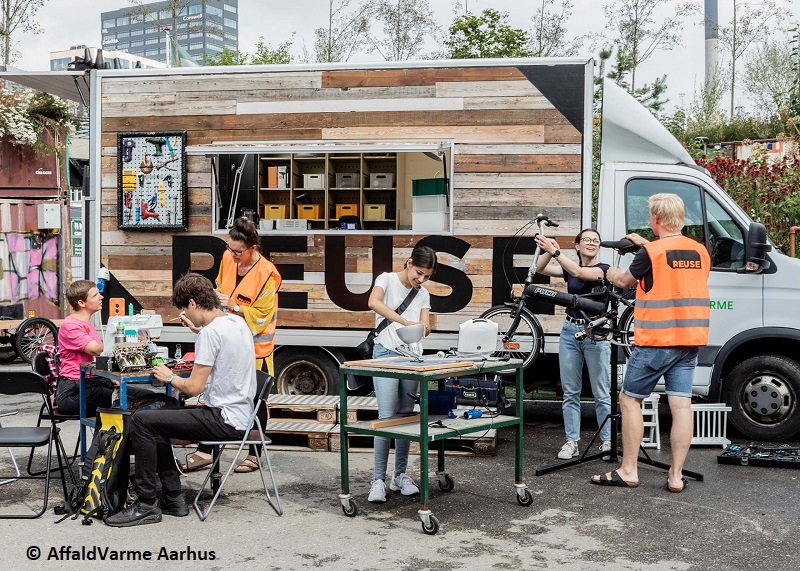
Kredsløb has recently published two guidelines to inspire other organisations.
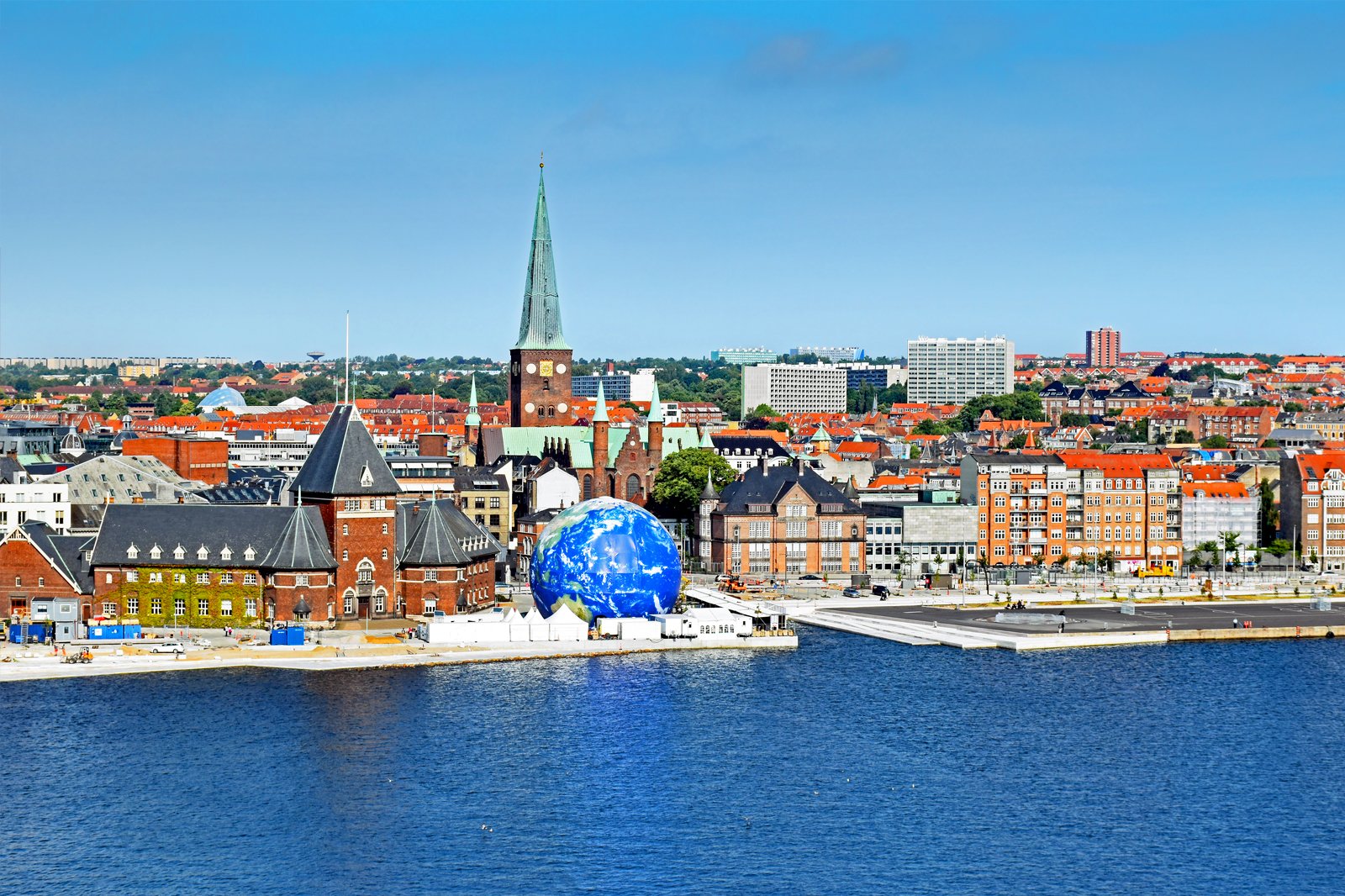
Kredsløb’s Action Plan focuses on improving the Waste Plan Aarhus 2021-2026, with a shift in focus from recycling to re-use and repair.

Marche Region is implementing an innovative Action Plan focused on re-us with improved software & training courses, fostering a circular economy
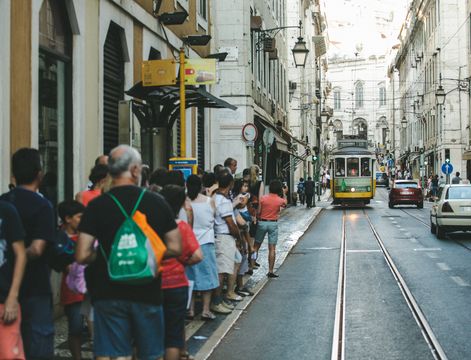
Cyprus takes significant strides towards a circular economy with the development of an Inter-municipal Reuse Centre.
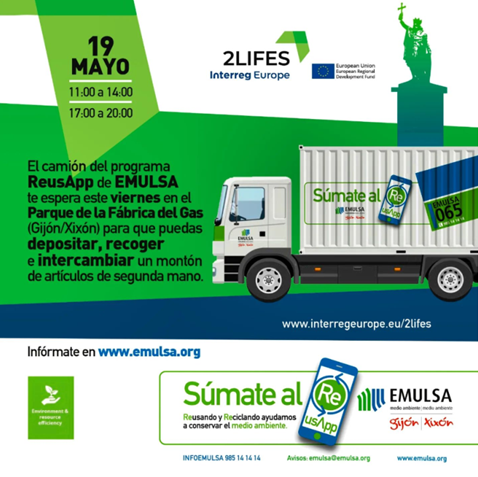
EMULSA, the waste management authority for the City of Gijón, Spain, is making significant progress in their mission to promote re-use and waste prevention.
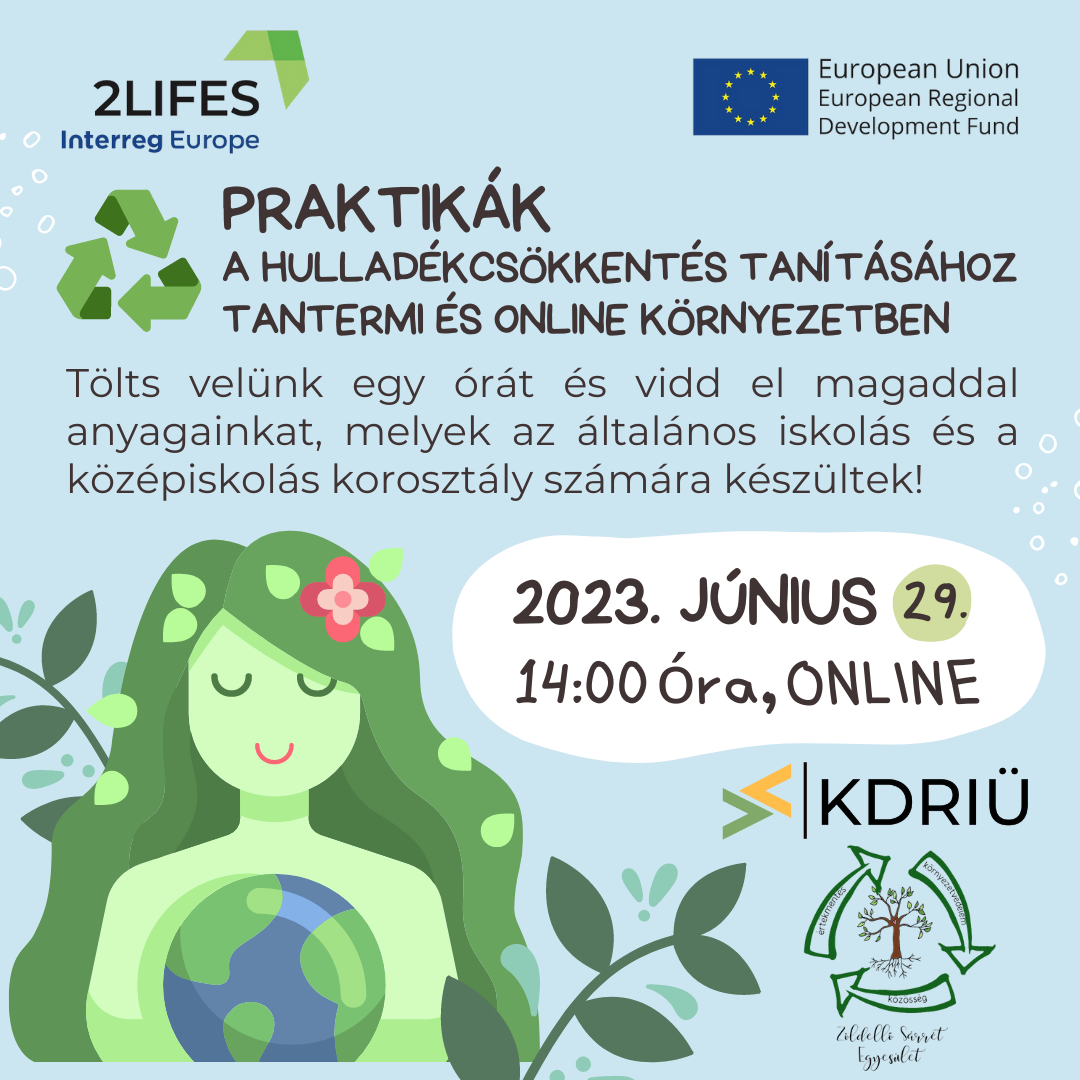
KDRIÜ's GreenTeen program progresses with online event showcasing completed training program, addressing waste reduction awareness for teenagers
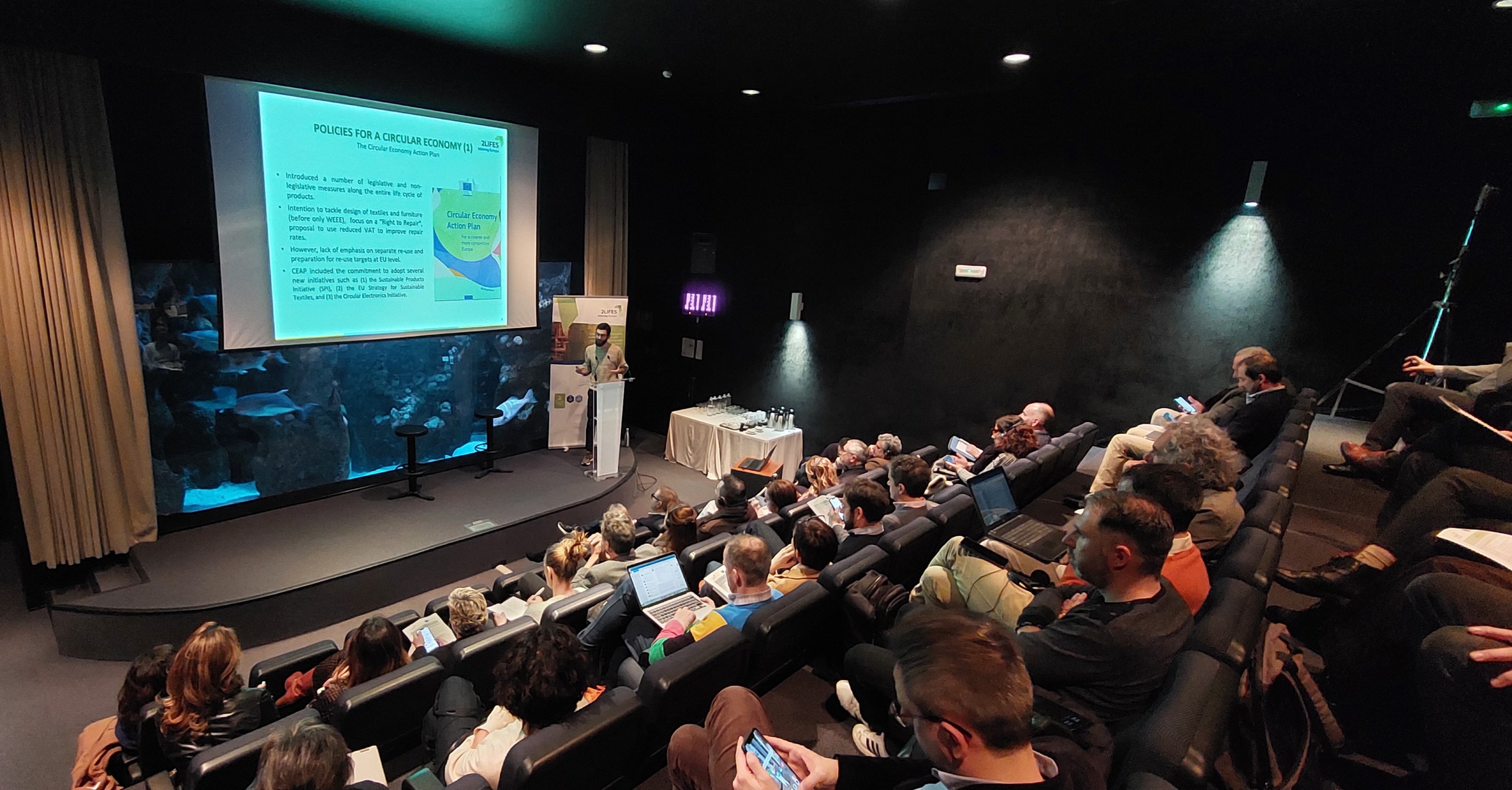
The 2LIFES Final Dissemination Event, held on 28th February 2023 in Gijón, Spain, proved to be an important and engaging conference.

The 2LIFES Final Dissemination Event will take place on 28th February 2023 in Gijón, Spain. The event will also be streamed online on Zoom.
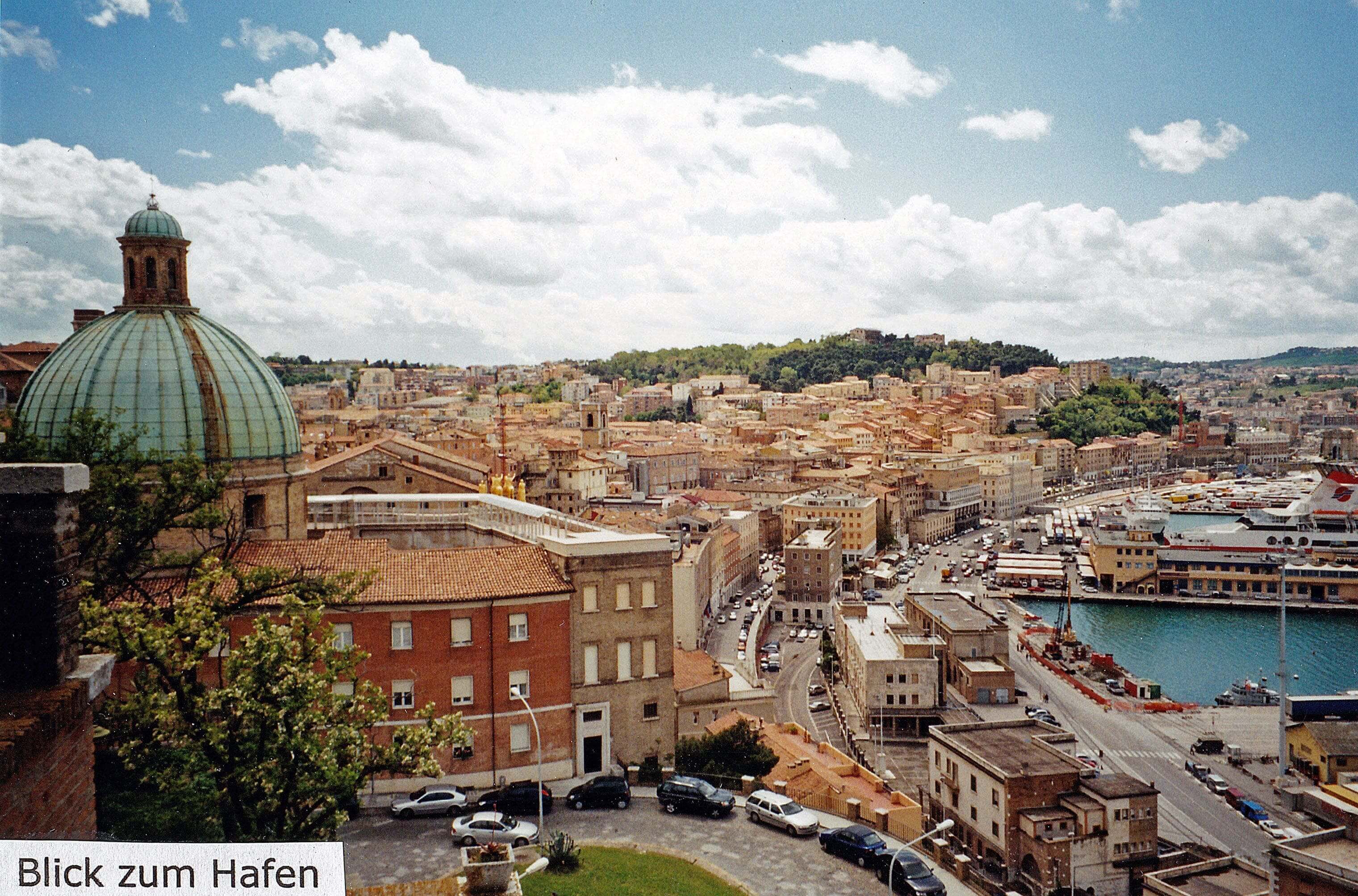
The Marche Region is making progress on the two pilot actions included in the Regional Action Plan approved some months ago.